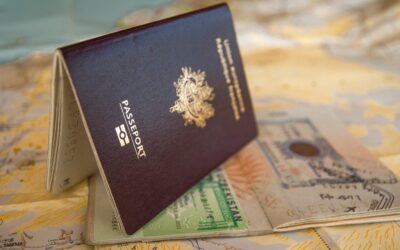Students who do not have a EU or EAU passport will need to apply for a student visa. This can be done at the Diplomatic Representations of Spain in their country of residence. It can only be requested 3 months before the start of classes, never before.
Study stays of up to 90 days do not require a study visa. But, depending on the nationality, a short-term visa (Schengen visas) may be required.
The following family members can obtain a visa to accompany the student:
- The spouse or de facto partner.
- Minor or disabled children.
The student family visa does not authorize members of the family to work.
Documents needed for the student:
You must submit ORIGINAL AND COPY of all documents:
* Shengen visa form. If the applicant is a minor, one of their parents or legal guardians will sign the application.
* Photography. A recent passport-size photograph, in color, with a light background, taken from the front, without dark glasses, reflections, or clothing that hides the oval of the face.
* Valid and current passport with biometric data. The biometric data contains information that can be used to verify the identity of the applicant and are normally installed in a microchip in the first page of the passport, together with your picture and information. The passport will be returned to you immediately after you submit your application. At the time of the visa application appointment, it must be valid for at least 2 years. The passport must be valid for at least the entire duration of the intended stay and have two blank pages. Passports issued more than 10 years ago are not accepted.
* Letter of admission provided to you by the University once you make the first payment and they have confirmed your enrollment.
* Proof of availability of financial means. You must prove that you have sufficient financial means to cover the expenses of the stay and return back to Spain, for you and accompanying family members. In many cases, the family or legal guardians will have to demonstrate these financial means, especially if you depend on their financial help. The minimum amount required is equal to the established Public Income Index (Indicador Público de Renta de Efectos Múltiples IPREM- in Spanish), and calculated each year based on monthly costs to determine how much money is needed to financially survive in Spain. If it is proven that the accommodation is already paid in advance for the entire stay, this amount will be reduced. For example,:
a. Certificate of granting of scholarships or educational credits.
b. Bank account statements for the last three months, issued by the bank, indicating the full name of the account holder and the currency.
c. International traveler’s checks in the applicant’s name.
If it is a family member who is going to take care of the applicant’s expenses, the documentation proving the resources available to said person must be provided. Additionally, the grantor responsible to carry these costs will need to document this at a public notary. The declaration must be duly legalized or apostilled by the issuing country, unless it was done by a Spanish Notary.
* Health insurance. Original and a copy of the public or private health insurance certificate contracted with an insurance company authorized to operate in Spain. The insurance must cover all the risks insured by the public health system in Spain. Travel insurance is not sufficient. Therefore, it is not necessary to cover repatriations and/or evacuations. This coverage of health insurance must be maintained for the entire term of the visa.
The medical insurance must not have a deductible, or co-payment or coverage limit, that is, it must cover 100% of medical, hospital and out-of-hospital expenses. Spanish companies such as Sanitas, Adeslas, Axa, etc. offer unlimited coverage of 100% of the expenses can be contracted from abroad, from 35 euros a month.
Exceptionally, medical insurance from foreign companies that establish maximum coverage limits may be accepted if they meet the other required characteristics. As a guideline, insurance covering up to a maximum of US$500,000.00 may be accepted. In any case, the insurer must be authorized to work in Spain. Please let us know if you have any questions or doubts about this, or if you would like more information.
* Criminal records.
When the duration of the studies exceeds 180 days, applicants that have reached a legal age must submit an original and a copy of their criminal record certificate issued by their country or countries of residence in the last 5 years. The criminal record certificate must be duly legalized or apostilled, unless it is issued in Spain.
* Medical certificate.
The applicant must provide an original and a copy of a medical certificate certifying that the applicant does not suffer from diseases that may have serious repercussions for public health in accordance with the International Health Regulations of 2005. The certificate in question must be formulated in the following terms «This medical certificate certifies that Mr./Mrs. …does not suffer from any of the diseases that may have serious public health repercussions in accordance with the provisions of the 2005 International Health Regulations”. The Medical Certificate must be legalized or apostilled, except if it is issued in Spain.
* Proof of residence. A document issued by the country of residence as a proof that you are a citizen or resident of that country concerned, and are able to apply at the Consulate in part of this consular district. It is important to know that you can only apply at an Embassy or Consulate that falls under this consular district. E.g. you live in Mexico City and can apply at the Embassy of Spain in Mexico City.
ome sort of document issued by the country where you are applying from as a proof that you are a citizen or resident of that country.
* Proof of identity and capacity of the legal representative. If the applicant is a minor, a copy of the identity document or passport of the parent and the document that proves the relationship will be presented.
Authorization of legal representatives. If the applicant is a minor, the original and a copy of the notarial act of the parents or guardians authorizing the minor’s travel to Spain and identifying the person who will take care of the minor in Spain must be provided.
a) Authorization from both parents or their legal representative to process the minor’s visa and for the minor to travel, if approved, in a duly legalized notarial document, unless it is issued by a Spanish Notary.
* Payment of the visa fee. The applicant must pay the corresponding fee at the time of submitting the application. The fee is not refundable, even if the outcome of the application is negative. For some nationalities, the visa is free.
Issue of Visa
Once the application is submitted, it is usually issued in about 2 to 3 weeks. As soon as the visa is issued, the applicant can travel to Spain.
Although it is not recommended, it can also be requested from Spain. In this case, the greatest complexity involves proving economic solvency, since the student must have an open bank account in Spain and deposit the money that proves it there, and this without having a NIE (Foreigner Identification Card)is not easy.
The study visa is granted for both Official and Institutional studies, as long as the study center is officially recognized in Spain. The list can be consulted on the website of the Ministry of Education.
Students can work 30 hours a week, student visa, and full-time during vacation periods. As long as they have an official contract and their studies are not affected. Universities offer schedules compatible with this in mind, especially for Master’s students. In addition, there are several ways to extend the stay in Spain after finishing your studies, depending on the time that the student has been in Spain and the job opportunities available.
At the end of their official studies, students from countries that are part of the Ibero-American Summit are able to request Spanish nationality by residence, demonstrating only 2 years of work experience with a work permit in Spain. This is one of the great advantages of studying in Spain.
All information has been obtained from the official website of the Spanish Ministry of Labor, Migration and Social Security and is subject to
constant changes, so we recommend that you check with the authorities of the Spanish Ministry beforehand.
Link: https://extranjeros.inclusion.gob.es/











